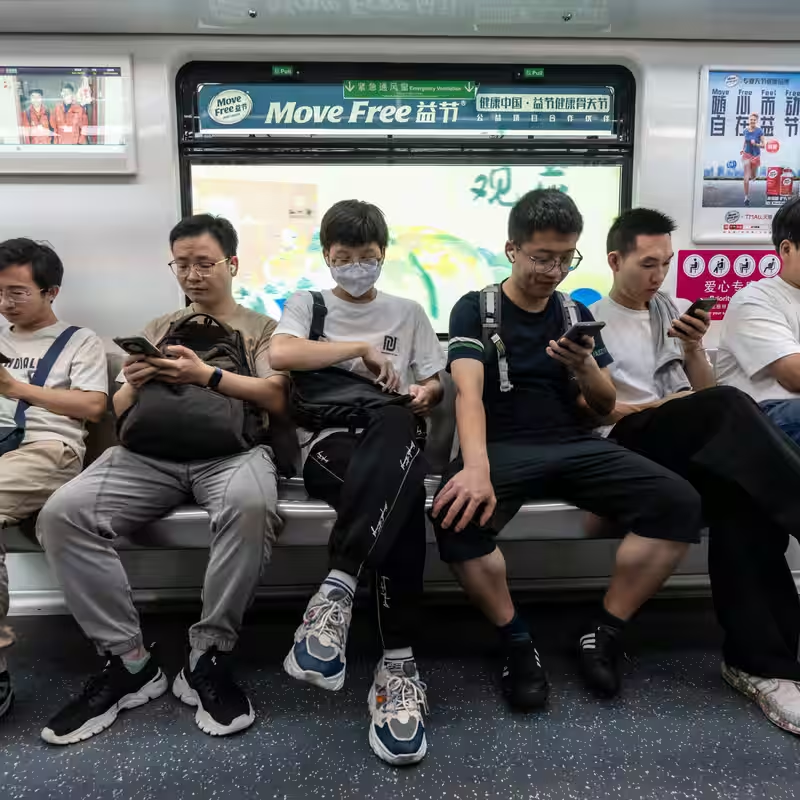Pessimism might seem like a personal mood—but in today’s China, it’s increasingly treated as a national security threat. As economic headwinds mount and youth unemployment lingers near record highs, Chinese internet regulators have launched a sweeping crackdown on online expressions of despair, cynicism, or even mild dissatisfaction with work, marriage, or daily life.
Table of Contents
- The Crackdown on Pessimism
- Banned Phrases and Digital Thought Policing
- Why Now? Economic Anxiety Meets State Control
- How Young Chinese Are Reacting
- Global Implications of Mood Censorship
- Sources
Pessimism Is the New Protest
In a move that’s drawn both ridicule and alarm, China’s Cyberspace Administration has intensified its campaign against what it calls “negative energy” online. Posts lamenting long work hours, questioning the value of marriage, or even using phrases like “I’m exhausted” or “life is meaningless” are being flagged, deleted, or used as grounds for account suspension.
According to internal directives reviewed by international media, platforms like Weibo, Douyin (TikTok’s Chinese version), and Xiaohongshu must now actively monitor and suppress content that “spreads despair” or “undermines social stability.” Algorithms are trained to detect not just keywords, but tone—down to the use of ellipses (…) or repeated sighing emojis.
Banned Phrases and Digital Thought Policing
Chinese netizens have begun compiling unofficial lists of “risky” expressions. Among them:
- “Lying flat” (tangping) – a once-popular anti-hustle philosophy
- “Let it rot” (bai lan) – expressing apathy toward societal expectations
- “Why even try?”
- “No future”
- “I’d rather be single forever”
Even fictional characters in web novels are being edited to sound more optimistic. One popular romance story was reportedly revised so the protagonist no longer “cried in the rain” but instead “smiled through the storm.”
| Platform | Content Removals (Q3 2025) | Common Reasons |
|---|---|---|
| Over 1.2 million posts | “Pessimistic tone,” “anti-marriage sentiment” | |
| Douyin | 890,000+ videos | “Gloomy music,” “defeatist captions” |
| Xiaohongshu | 410,000 notes | “Workplace despair,” “childfree advocacy” |
Why Now? Economic Anxiety Meets State Control
The timing isn’t accidental. China’s economy is grappling with deflationary pressures, a property crisis, and youth unemployment hovering above 15%. For the first time in decades, many young people don’t believe their lives will be better than their parents’.
Rather than address structural issues, authorities appear to be treating symptoms—by silencing the symptoms themselves. “If people stop complaining, maybe they’ll stop feeling bad,” seems to be the logic, experts say.
But this approach risks backfiring. “You can delete a post, but you can’t delete reality,” said Dr. Li Wei, a sociologist formerly based in Shanghai (now teaching abroad). “Suppressing despair doesn’t create hope—it just drives it underground.”
How Young Chinese Are Reacting
Online, users are adapting with dark humor and coded language. Phrases like “I’m full of sunshine!” now often carry heavy irony. Others use metaphors—comparing life to a “broken elevator” or “expired yogurt”—to skirt detection.
Some have gone silent entirely. “It’s easier to post cat videos than talk about how I can’t afford rent,” said a 26-year-old graphic designer in Chengdu, who asked to remain anonymous.
Global Implications of Mood Censorship
China’s campaign raises broader questions about the role of emotion in public discourse. While other governments regulate hate speech or misinformation, few target sadness or skepticism as threats to national order.
Yet as digital surveillance grows worldwide, the line between mental health expression and “disorderly conduct” may blur elsewhere too. For now, China stands alone in policing sighs—but it may not stay that way.




